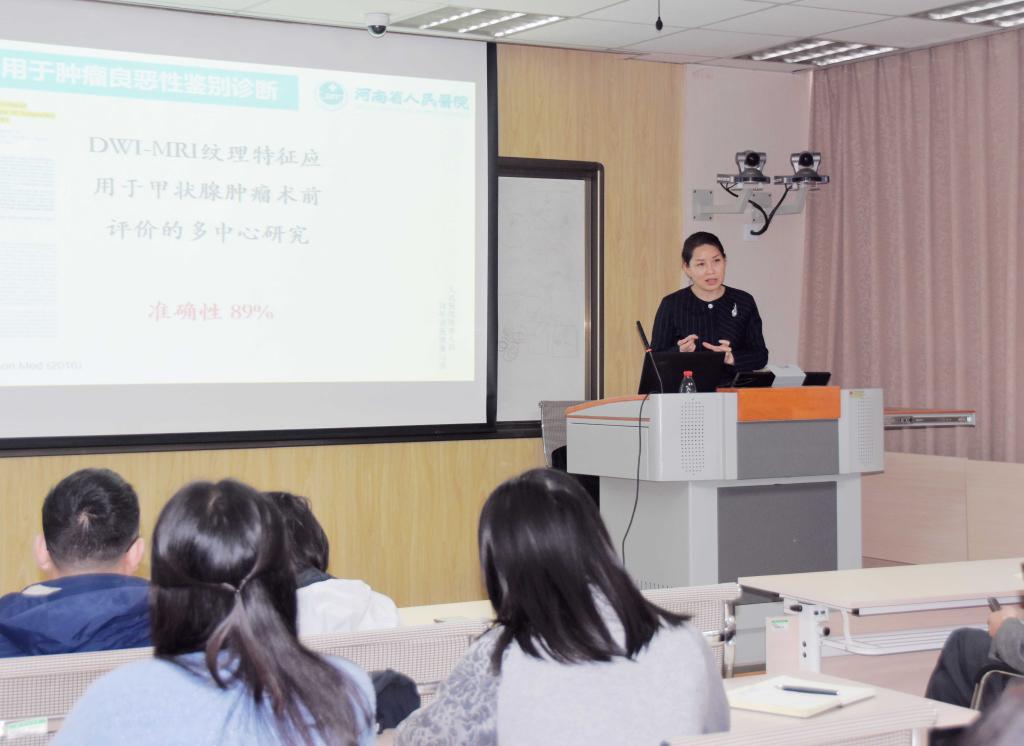
On November 19, the 29th“Henan University, Biweekly BioMed Seminar” (referred to as “HU-BBS”) was held in Jinming Campus, Henan University. Prof. Wang Meiyun from Henan Provincial People’s Hospital was invited to give a report on “Application of Artificial Intelligence in Medical Imaging”. Over 60 experts and scholars shared wonderful viewpoints and thoughts on site, while many other scholars and graduate students also participated in the seminar online.
Prof. Wang firstly introduced the concept of medical imaging, which can use optical, electrical, magnetic, acoustic and other physical phenomena to obtain the internal tissue image of human body in a non-invasive way. The development of artificial intelligence research in medical imaging requires basic conditions such as standardized imaging data, advanced algorithms and technologies, and integration of medicine and engineering.
Prof. Wang unfolded her speech from two aspects: progress in radiomic studies and progress in deep learning. Complex and diverse tasks, non-standard isolated data, and long-tail disease are challenges when dealing with medical image processing tasks. Prof. Wang said that radiomic is the bridge between medical imaging and personalized medicine. It is widely used in the differential of benign and malignant tumors, evaluation of preoperative lymph node status. Then, Prof. Wang introduced several successful application examples of deep learning in medical imaging. Google’s artificial intelligence system can identify breast cancer more accurately than radiologists, according to a study published in Nature magazine. Using deep learning algorithm, the sensitivity and specificity of diabetic retinopathy in retinal fundus reach 90.3% and 98.1%. Stanford researchers have trained a deep learning algorithm to diagnose skin cancer, which can do as well as dermatologists in identifying skin cancer. Prof. Wang’s research team developed an MRI-based radiomic signature (RS) for prediction of distant metastasis within a multicenter dataset. This can help individualized treatment planning to select patients who may benefit from adjuvant chemotherapy for distant control. At last, Prof. Wang proposed that artificial intelligence research in medical imaging should adhere to the concept of "originating from the clinic and serving the clinic".
After the report, Prof. Wang and other experts exchanged views on artificial intelligence application. Experts in different fields exploring new ideas for the integration of medical and engineering.
Contribution: School of Medicine

 News /
Content
News /
Content


